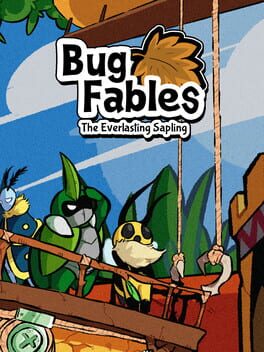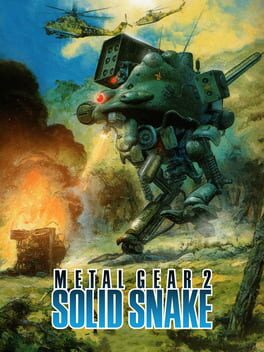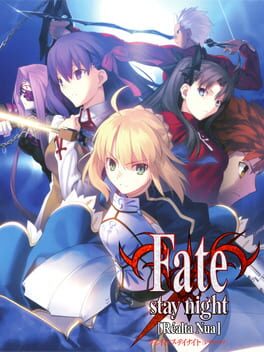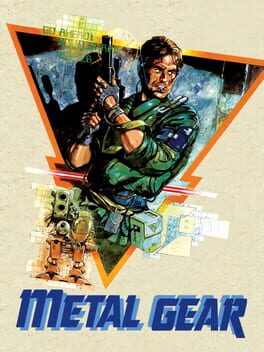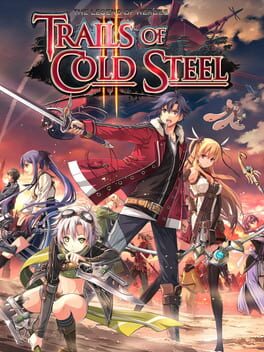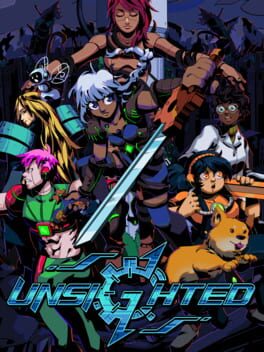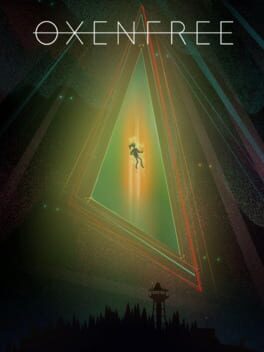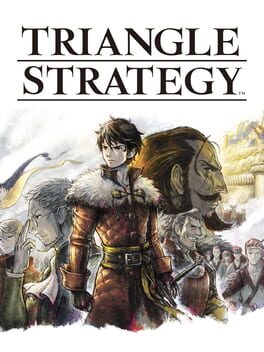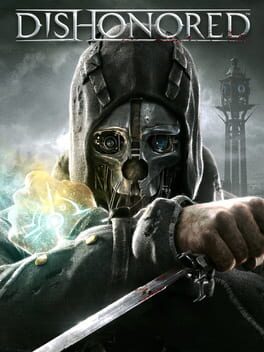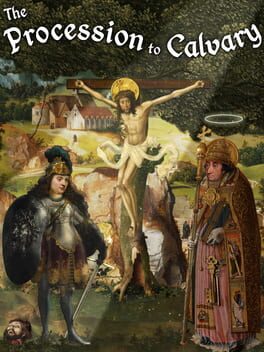Sciembe
One of the very few times where a derivative work actually manages to surpass what initially inspired it.
The combat system strikes a great balance between simplicity and depth. On the simple side, you will always have the same three party members each with only a handful of moves and very low stat numbers to keep everything comprehensible. Using various enemy types and allowing for significant gameplay changes through equipped badges, Bug Fables is able to squeeze as much value as it possibly can from what first appears to be an extremely simple system, creating a satisfying array of challenges.
While other aspects such as the characters and story are weaker, they aren't the main focus. But they serve their role well enough by providing context and motivation for your actions throughout the game and never overstay their welcome.
Going into this game, I was expecting a more nostalgic experience that would scratch the same itch that the first two Paper Mario used to do in my childhood. But while the similarities between the games are apparent, the changes Bug Fables made were substantial enough that it felt far more like an advancement of the original Paper Mario games than a retreading of the same ground. And putting aside my nostalgia, I probably have to admit that Bug Fables is the better game overall.
The combat system strikes a great balance between simplicity and depth. On the simple side, you will always have the same three party members each with only a handful of moves and very low stat numbers to keep everything comprehensible. Using various enemy types and allowing for significant gameplay changes through equipped badges, Bug Fables is able to squeeze as much value as it possibly can from what first appears to be an extremely simple system, creating a satisfying array of challenges.
While other aspects such as the characters and story are weaker, they aren't the main focus. But they serve their role well enough by providing context and motivation for your actions throughout the game and never overstay their welcome.
Going into this game, I was expecting a more nostalgic experience that would scratch the same itch that the first two Paper Mario used to do in my childhood. But while the similarities between the games are apparent, the changes Bug Fables made were substantial enough that it felt far more like an advancement of the original Paper Mario games than a retreading of the same ground. And putting aside my nostalgia, I probably have to admit that Bug Fables is the better game overall.
2021
It was an enjoyable experience. There isn't anything deep or interesting about Class of '09. The characters are mostly surface-level, the story so absurd that it can't deliver any meaningful commentary, and the presentation screams low budget indie title.
But for a few hours, I managed to enjoy my time. The comedy sure isn't sophisticated or anything but its crude and over-the-top nature gave it a pretty strong impact that never really let up. As the game constantly switches between cringe, teenage drama, and extremist politics it can be hard to look away. There's always something happening that keeps the experience fresh and the humor engaging. Sure, there might not be anything deeper than that but I doubt the game was trying to do that anyway.
So yeah.... Class of '09 was a fun time. It's pulpy, crude, and entertaining as long as that's the kind of humor you find enjoyable. And as long as you're not going in expecting anything greater than that (And god only knows why you would) you'll probably get enough out of the experience to justify the time spent on it.
But for a few hours, I managed to enjoy my time. The comedy sure isn't sophisticated or anything but its crude and over-the-top nature gave it a pretty strong impact that never really let up. As the game constantly switches between cringe, teenage drama, and extremist politics it can be hard to look away. There's always something happening that keeps the experience fresh and the humor engaging. Sure, there might not be anything deeper than that but I doubt the game was trying to do that anyway.
So yeah.... Class of '09 was a fun time. It's pulpy, crude, and entertaining as long as that's the kind of humor you find enjoyable. And as long as you're not going in expecting anything greater than that (And god only knows why you would) you'll probably get enough out of the experience to justify the time spent on it.
2015
The mysteries themselves are quite simple and the unique mechanics behind them (notably the time limit and the fact that the game continues even if you fail your cases) don't get much usage as a result. And while they can be fun in the moment-to-moment experience you probably won't be scratching your head at any point while thinking of a solution.
Normally I would care a lot about that lack of depth and mechanical complexity, but I can set it aside in this case because the game does a great job of compensating in other areas. The old-fashioned visuals, music, and dialogue all mesh with the setting and story in such a strong way that it feels oddly immersive despite being a bunch of animals in Restoration-era France. The core story was far more political than I was expecting given its silly initial premise and the game did a surprisingly good job of handling the topics it brought up with nuance and compassion.
So even though Aviary Attorney was quite weak in the aspects I initially played it for, I still enjoyed my time with it overall because of its strengths in the areas I normally wouldn't focus as much on in a mystery game. So you may want to adjust your expectations accordingly before you start playing, but it should still be a good time regardless.
Normally I would care a lot about that lack of depth and mechanical complexity, but I can set it aside in this case because the game does a great job of compensating in other areas. The old-fashioned visuals, music, and dialogue all mesh with the setting and story in such a strong way that it feels oddly immersive despite being a bunch of animals in Restoration-era France. The core story was far more political than I was expecting given its silly initial premise and the game did a surprisingly good job of handling the topics it brought up with nuance and compassion.
So even though Aviary Attorney was quite weak in the aspects I initially played it for, I still enjoyed my time with it overall because of its strengths in the areas I normally wouldn't focus as much on in a mystery game. So you may want to adjust your expectations accordingly before you start playing, but it should still be a good time regardless.
2010
Easily some of the strongest writing I've seen in a video game paired with janky and frustrating combat that can make much of the moment-to-moment experience a chore to get through.
Balancing out all its parts, New Vegas is still a very good game. For as frustrating as some of its individual aspects may be, they aren't central to the experience in the same way that the story and writing are. Both in the macro-level conflict between the NCR and Legion and on the micro-level writing of the various characters and factions across New Vegas, the quality and quantity of writing are some of the most impressive I've seen in a game. So while the rough gameplay occupied a majority of my actual playtime, its always the writing that I think about instead when I look back at my experience.
New Vegas is absolutely worth playing. Just turn the difficulty down to easy and don't pick fights that you don't need to. Dedicate your attention to the game's strong writing and keep your involvement in other aspects to the minimum needed to get the full experience from the parts that are actually worth getting through.
Balancing out all its parts, New Vegas is still a very good game. For as frustrating as some of its individual aspects may be, they aren't central to the experience in the same way that the story and writing are. Both in the macro-level conflict between the NCR and Legion and on the micro-level writing of the various characters and factions across New Vegas, the quality and quantity of writing are some of the most impressive I've seen in a game. So while the rough gameplay occupied a majority of my actual playtime, its always the writing that I think about instead when I look back at my experience.
New Vegas is absolutely worth playing. Just turn the difficulty down to easy and don't pick fights that you don't need to. Dedicate your attention to the game's strong writing and keep your involvement in other aspects to the minimum needed to get the full experience from the parts that are actually worth getting through.
2022
Its a very neat game for how it seems to mix the structure and feel of a more traditional 2D brawler with the depth and detail of a fighting game. The act of juggling multiple opponents with the various room layouts, hazards, and scenarios the game throws at you felt constantly engaging while the technical complexity of its fighting system, while never overwhelming, was still enough to keep the game interesting and discouraged the mindless strategies seen in lots of other crowd-focused brawlers.
But Sifu does stumble at a few points. First, its skill system (at least when it comes to your movement, and attack options) don't feel appropriate for the game. You start off with an extremely simple moveset that still works well against all the game's challenges but the game needs to reward performance somehow and chooses to let you unlock additional moves. A few of these few like they should have been options from the start and its odd to think somebody could just skip them entirely given how the impact combat while others feel so niche and unnecessary that the game would have been better off removing them instead of clogging its otherwise streamlined system with moves that really don't belong.
And my second main issue is with the game's many 1v1 fights. The minibosses are usually fine and their addition to the regular enemy pool adds a healthy challenge to later encounters. But the actual bosses are a much more mixed bag. The first two are fine, but beyond that they all struggle at giving a satisfying fight. The strategy for beating each one tends to be extremely restrictive and, combined with their much faster and more energetic animations, actually learning their timing felt more like an exercise in trial and error. But with the game's age system and the way losing too many lives to a boss can make restarting the whole level the only viable move, that trial and error approach can be extremely frustrating to deal with.
Sifu is still a fun game, though I do wish it had made some changes. More streamlining of the combat system to trim unneeded moves and more flexibility with the bosses would substantially improve the experience while some technical improvements (especially with the camera angles) would help avoid some annoying situations. But beyond that, there isn't anything about Sifu that needs to be overhauled entirely. Its a good foundation and just needs some tweaks to be a great one.
But Sifu does stumble at a few points. First, its skill system (at least when it comes to your movement, and attack options) don't feel appropriate for the game. You start off with an extremely simple moveset that still works well against all the game's challenges but the game needs to reward performance somehow and chooses to let you unlock additional moves. A few of these few like they should have been options from the start and its odd to think somebody could just skip them entirely given how the impact combat while others feel so niche and unnecessary that the game would have been better off removing them instead of clogging its otherwise streamlined system with moves that really don't belong.
And my second main issue is with the game's many 1v1 fights. The minibosses are usually fine and their addition to the regular enemy pool adds a healthy challenge to later encounters. But the actual bosses are a much more mixed bag. The first two are fine, but beyond that they all struggle at giving a satisfying fight. The strategy for beating each one tends to be extremely restrictive and, combined with their much faster and more energetic animations, actually learning their timing felt more like an exercise in trial and error. But with the game's age system and the way losing too many lives to a boss can make restarting the whole level the only viable move, that trial and error approach can be extremely frustrating to deal with.
Sifu is still a fun game, though I do wish it had made some changes. More streamlining of the combat system to trim unneeded moves and more flexibility with the bosses would substantially improve the experience while some technical improvements (especially with the camera angles) would help avoid some annoying situations. But beyond that, there isn't anything about Sifu that needs to be overhauled entirely. Its a good foundation and just needs some tweaks to be a great one.
I was pleasantly surprised playing this. Metal Gear 1 was a very rough experience and gave me no shortage of issues, but this managed to take what was a very rough foundation and turn it into something genuinely fun to play despite its age.
MG2's stealth is hardly complicated. Stay out of guards' lines of sight, avoid stepping on surfaces that make noises, and if there is no opportunity to slip by undetected then wait for the guards' patrols to line up and give you the chance. With a top-down perspective and a radar in the corner showing all enemy locations (even on adjacent screens) the game is pretty generous at giving you the tools to remain undetected instead of using unpredictability as a substitute for difficulty.
This game improves over its predecessor in a number of major ways. The design and layout of the map is far better at keeping up the pressure with nearby enemies without feeling overbearing or too simple. At the same time, it avoids the constant backtracking of the previous game by introducing plenty of shortcuts and a more centralized structure for the base so that no part of the map is absurdly far away. Combine this with a much better hints system with the Codec calls (which were extremely minimal in the first game) and better instructions for progression and I never hit a point where I felt like I had no idea what to do.
Its easily one of the best aged games of its time period and rarely gave me any difficulties. So I don't have to preface the review with any statements about rough edges or outdated design choices. Just give it a shot and even a modern gamer shouldn't face any issues.
MG2's stealth is hardly complicated. Stay out of guards' lines of sight, avoid stepping on surfaces that make noises, and if there is no opportunity to slip by undetected then wait for the guards' patrols to line up and give you the chance. With a top-down perspective and a radar in the corner showing all enemy locations (even on adjacent screens) the game is pretty generous at giving you the tools to remain undetected instead of using unpredictability as a substitute for difficulty.
This game improves over its predecessor in a number of major ways. The design and layout of the map is far better at keeping up the pressure with nearby enemies without feeling overbearing or too simple. At the same time, it avoids the constant backtracking of the previous game by introducing plenty of shortcuts and a more centralized structure for the base so that no part of the map is absurdly far away. Combine this with a much better hints system with the Codec calls (which were extremely minimal in the first game) and better instructions for progression and I never hit a point where I felt like I had no idea what to do.
Its easily one of the best aged games of its time period and rarely gave me any difficulties. So I don't have to preface the review with any statements about rough edges or outdated design choices. Just give it a shot and even a modern gamer shouldn't face any issues.
Its quite good as a character-driven story, but often struggles between balancing its various parts.
There are three main story beats that Fate is juggling. First you have the more lighthearted daily life stuff with going to school, running errands, and other activities not really related to the Grail War. This is mostly packed in the beginning of each route but often continues for too long or crops up later in the story where it cuts into the better content.
Second there's the character-driven core of the story. Shirou's inner tensions about heroism, the motivations and struggles of the Grail War's various participants, and the many conflicts where these interests collide. This is easily where Fate is at its strongest.
And finally, there's the more magic and lore-focused elements of the story where the writers are trying to explain how everything functions and why the Grail War operates the way that it does. This ends up being a mixed bag as, while some explanation is necessary, it often ends up getting bogged down in unnecessary and time-consuming details that end up being the magical equivalent of technobabble. It gets even worse in Heaven's Feel where Fate begins exploring the Grail War's origins and history, pulling a whole bunch of stuff from thin air that was never hinted at before and bombarding the reader with endless explanations that only marginally help make sense of it all.
Fate has a very strong core and I think its character-driven conflict alone makes it worth reading. But it often strays away from its strengths in ways that undermine the experience. Sometimes its just a distraction that interrupts the flow of everything else happening, but at other times it grinds the story to an awkward pause and muddles the core focus rather than giving it additional clarity.
Still, give it a shot. I can absolutely see why the series became so popular in the first place and its reputation is well deserved. Just know that you may have to put up with a handful of rough patches along the way.
There are three main story beats that Fate is juggling. First you have the more lighthearted daily life stuff with going to school, running errands, and other activities not really related to the Grail War. This is mostly packed in the beginning of each route but often continues for too long or crops up later in the story where it cuts into the better content.
Second there's the character-driven core of the story. Shirou's inner tensions about heroism, the motivations and struggles of the Grail War's various participants, and the many conflicts where these interests collide. This is easily where Fate is at its strongest.
And finally, there's the more magic and lore-focused elements of the story where the writers are trying to explain how everything functions and why the Grail War operates the way that it does. This ends up being a mixed bag as, while some explanation is necessary, it often ends up getting bogged down in unnecessary and time-consuming details that end up being the magical equivalent of technobabble. It gets even worse in Heaven's Feel where Fate begins exploring the Grail War's origins and history, pulling a whole bunch of stuff from thin air that was never hinted at before and bombarding the reader with endless explanations that only marginally help make sense of it all.
Fate has a very strong core and I think its character-driven conflict alone makes it worth reading. But it often strays away from its strengths in ways that undermine the experience. Sometimes its just a distraction that interrupts the flow of everything else happening, but at other times it grinds the story to an awkward pause and muddles the core focus rather than giving it additional clarity.
Still, give it a shot. I can absolutely see why the series became so popular in the first place and its reputation is well deserved. Just know that you may have to put up with a handful of rough patches along the way.
1987
It definitely hasn't aged well. And that's pretty understandable for a game from 1987, but it still poses lots of issues.
The game really suffers in two main ways. First, the gameplay itself is very rough. Stealth and whether enemies can see you or not feels very inconsistent. Sometimes they're completely blind and other times they'll spot you from a mile away. Unlike future stealth games which offer plenty of opportunities to avoid the enemy's gaze and learn their limitations, MG1 doesn't shed much light on what enemies are capable of making stealth often feel like an exercise in trial and error. But even worse is the combat. Bullets are so slow enemies can literally outrun them, while the XY axes that you and the enemies travel along is viewed at an angle that makes it difficult to line up shots. You'll quickly learn that precision is impossible and your best bet is always to shoot first and aim later.
But the much larger issue with the game is its lack of direction. There is a huge amount of backtracking, yet the game can be pretty obtuse as to when its needed. The codec is a neat gimmick but doesn't do well as a guide. 90% of the time you'll just get no response at all when you try to call someone and yet you're expected to rely on info you get from it for some important late-game segments. Rather than bash your head against a wall, I'd just recommend using a guide when you cant figure out how to proceed. 90% of the time its the game that's being dumb, not you.
I cant set my standards too high here. The stealth genre barely existed at this point so the clunkiness is understandable. And the game does have some charm that you can see the bits of Kojima shining through even if its not nearly as apparent as with his later titles.
Judged purely as a game, I don't think its worth playing. But looking at it more broadly as a piece of gaming history, as context for the rest of the MGS series, and as a unique experience, I think you can still justify a playthrough. Just don't set your hopes too high.
The game really suffers in two main ways. First, the gameplay itself is very rough. Stealth and whether enemies can see you or not feels very inconsistent. Sometimes they're completely blind and other times they'll spot you from a mile away. Unlike future stealth games which offer plenty of opportunities to avoid the enemy's gaze and learn their limitations, MG1 doesn't shed much light on what enemies are capable of making stealth often feel like an exercise in trial and error. But even worse is the combat. Bullets are so slow enemies can literally outrun them, while the XY axes that you and the enemies travel along is viewed at an angle that makes it difficult to line up shots. You'll quickly learn that precision is impossible and your best bet is always to shoot first and aim later.
But the much larger issue with the game is its lack of direction. There is a huge amount of backtracking, yet the game can be pretty obtuse as to when its needed. The codec is a neat gimmick but doesn't do well as a guide. 90% of the time you'll just get no response at all when you try to call someone and yet you're expected to rely on info you get from it for some important late-game segments. Rather than bash your head against a wall, I'd just recommend using a guide when you cant figure out how to proceed. 90% of the time its the game that's being dumb, not you.
I cant set my standards too high here. The stealth genre barely existed at this point so the clunkiness is understandable. And the game does have some charm that you can see the bits of Kojima shining through even if its not nearly as apparent as with his later titles.
Judged purely as a game, I don't think its worth playing. But looking at it more broadly as a piece of gaming history, as context for the rest of the MGS series, and as a unique experience, I think you can still justify a playthrough. Just don't set your hopes too high.
The combat is largely unchanged from CS1. A step down from previous Trails titles in terms of difficult and complexity, but still decent overall.
CS2's issues lie much more with its story. The setup this game got from CS1 should have given it plenty of good opportunities for a strong narrative. The Noble/Reformist tensions and the outbreak of Civil War are pretty fertile ground for a story. Yet CS2 fails to make good use of them. Whatever ideological justifications for conflict the first game set up and never touched on here except to make the villains look stupid for having such silly beliefs, whereas the war itself barely even feels impactful with the most noticeable change being all the people complaining about their taxes being too high.
I wouldn't go so far as to call it a bad game, but it is a letdown. CS1 laid a decent enough foundation but CS2 failed to make use of it. And while the gameplay is still enjoyable enough to keep the game afloat, it's barely changed from CS1 which itself was a simplification of previous series entries.
I'm too invested in the series to stop here and I imagine the same is true of anyone who made it this far. I certainly wont drop it just because of the issues here. But this is definitely a low point for the series that I just hope it recovers from.
CS2's issues lie much more with its story. The setup this game got from CS1 should have given it plenty of good opportunities for a strong narrative. The Noble/Reformist tensions and the outbreak of Civil War are pretty fertile ground for a story. Yet CS2 fails to make good use of them. Whatever ideological justifications for conflict the first game set up and never touched on here except to make the villains look stupid for having such silly beliefs, whereas the war itself barely even feels impactful with the most noticeable change being all the people complaining about their taxes being too high.
I wouldn't go so far as to call it a bad game, but it is a letdown. CS1 laid a decent enough foundation but CS2 failed to make use of it. And while the gameplay is still enjoyable enough to keep the game afloat, it's barely changed from CS1 which itself was a simplification of previous series entries.
I'm too invested in the series to stop here and I imagine the same is true of anyone who made it this far. I certainly wont drop it just because of the issues here. But this is definitely a low point for the series that I just hope it recovers from.
2021
Unsighted is a fun game and has all the pieces of a good metroidvania, but I cant help but feel it never tuned all those individual pieces quite right.
I played the game on Action Girl difficulty. The game suggested it as "Intended challenge level, recommended for experienced players", but I found it to be very easy. The stats screen at the end of the game said I had died just 11 times and I didn't even use items like the revive cog and other stuff that felt too game-breaking. Just about every enemy can be defeated by parrying it 1-2 times and all of the parries are heavily telegraphed. Even the big endgame bosses that your companion warns you against fighting are pretty simple to beat with tutorial weapons (Steam even shows 35% of players have beaten them with a non-endgame weapon, compared to 56% who have beaten the tutorial boss).
The timer also fell flat. Meteor Dust (the currency used to extend the timer for each character) is abundant and you'll only hoard it early when you don't realize just how plentiful it is. Meanwhile most NPCs have timers that are more than enough to complete the game without you ever needing to extend them. I only lost 3 NPCs total thanks to their time limit, but I had more than enough dust to save them anyway. I just didn't bother because they were useless and I couldn't be bothered to backtrack just to extend their life.
I will give it credit. Unsighted is a fun game to play. The enemies are quick and movement is fun. Even if its not very difficult, I still enjoyed the moment-to-moment feel of the combat. While I would have enjoyed it more had the challenge been a fair bit higher, its far from a bad game as-is. Maybe Robot Apocalypse is a better fit for challenge, but I don't care enough to replay the game to find out. I'm happy with what I got to experience and that's about it.
I played the game on Action Girl difficulty. The game suggested it as "Intended challenge level, recommended for experienced players", but I found it to be very easy. The stats screen at the end of the game said I had died just 11 times and I didn't even use items like the revive cog and other stuff that felt too game-breaking. Just about every enemy can be defeated by parrying it 1-2 times and all of the parries are heavily telegraphed. Even the big endgame bosses that your companion warns you against fighting are pretty simple to beat with tutorial weapons (Steam even shows 35% of players have beaten them with a non-endgame weapon, compared to 56% who have beaten the tutorial boss).
The timer also fell flat. Meteor Dust (the currency used to extend the timer for each character) is abundant and you'll only hoard it early when you don't realize just how plentiful it is. Meanwhile most NPCs have timers that are more than enough to complete the game without you ever needing to extend them. I only lost 3 NPCs total thanks to their time limit, but I had more than enough dust to save them anyway. I just didn't bother because they were useless and I couldn't be bothered to backtrack just to extend their life.
I will give it credit. Unsighted is a fun game to play. The enemies are quick and movement is fun. Even if its not very difficult, I still enjoyed the moment-to-moment feel of the combat. While I would have enjoyed it more had the challenge been a fair bit higher, its far from a bad game as-is. Maybe Robot Apocalypse is a better fit for challenge, but I don't care enough to replay the game to find out. I'm happy with what I got to experience and that's about it.
2016
It has a few interesting elements, but not enough to make the overall experience anything memorable.
The game starts off well. You have some basic teen-movie bickering at first, but the game quickly throws you into the deep end with a bunch of weird supernatural occurrences. As I thoroughly explored the island and found clues as to what's happening, I was enjoying my time quite a bit. But while the story and tone were engaging by that point, it was more in the sense of "I wonder what the payoff to this is going to be" rather than the material being good in its own right. And in that respect, Oxenfree failed to impress.
The mystery simply doesn't have enough detail or depth to justify the hours of exploration to get it. All it takes is learning a few early details and you can infer what the general gist of the story is going to be. And while these is plenty of hints and info provided apart from the necessary ones, they really don't feel impactful enough to justify their inclusion. There are a number of stacked stones around the island that will play a radio station if you tune into the right frequency, but almost all of these are either too obscure to provide any meaningful insight (without going down the whole ARG rabbithole) or only really provide info that is very tangential to the rest of the plot. The Adler pages are better, but still not great and not worth having to explore the entire island again to locate them. And while there's the obvious rebuttal that these are optional, It would be silly to play a game with the mystery as such a major focus and ignore all of the non-necessary clues. Besides, I had no way of knowing how unimportant they were until after collecting them all.
And despite being a short game, it still feels annoyingly slow to play. Movement speed is painfully slow and nothing about the environments is complex enough for movement to feel interesting. And since you'll be going through the whole island 2-3 times (assuming you want to collect all the supplementary material to figure out the mystery... which I advise against) the slow movement feels even more grating.
There just wasn't much here to impress. The best elements don't build towards much while the ending only has an impact if you replay the game (which I tried, then gave up an hour in after getting exhausted with all the same movement and exploration). I can see some appeal here, but it just wasn't enough to support the entire game.
The game starts off well. You have some basic teen-movie bickering at first, but the game quickly throws you into the deep end with a bunch of weird supernatural occurrences. As I thoroughly explored the island and found clues as to what's happening, I was enjoying my time quite a bit. But while the story and tone were engaging by that point, it was more in the sense of "I wonder what the payoff to this is going to be" rather than the material being good in its own right. And in that respect, Oxenfree failed to impress.
The mystery simply doesn't have enough detail or depth to justify the hours of exploration to get it. All it takes is learning a few early details and you can infer what the general gist of the story is going to be. And while these is plenty of hints and info provided apart from the necessary ones, they really don't feel impactful enough to justify their inclusion. There are a number of stacked stones around the island that will play a radio station if you tune into the right frequency, but almost all of these are either too obscure to provide any meaningful insight (without going down the whole ARG rabbithole) or only really provide info that is very tangential to the rest of the plot. The Adler pages are better, but still not great and not worth having to explore the entire island again to locate them. And while there's the obvious rebuttal that these are optional, It would be silly to play a game with the mystery as such a major focus and ignore all of the non-necessary clues. Besides, I had no way of knowing how unimportant they were until after collecting them all.
And despite being a short game, it still feels annoyingly slow to play. Movement speed is painfully slow and nothing about the environments is complex enough for movement to feel interesting. And since you'll be going through the whole island 2-3 times (assuming you want to collect all the supplementary material to figure out the mystery... which I advise against) the slow movement feels even more grating.
There just wasn't much here to impress. The best elements don't build towards much while the ending only has an impact if you replay the game (which I tried, then gave up an hour in after getting exhausted with all the same movement and exploration). I can see some appeal here, but it just wasn't enough to support the entire game.
2022
It was a pretty decent game overall. I enjoyed my time with it, but I don't think it will be one of those titles that sticks around in my head for very long.
On the gameplay side, Triangle Strategy was a mixed bag. I enjoyed it a lot early on when I played on hard. Fights were challenging enough that I had to think seriously about my actions without feeling like they were unfair or requiring an absurdly specific strategy. But as the game went on, the gameplay failed to keep pace. Units will level up and their stats will improve, but the way you use them in battle rarely changes. New abilities are rare and more often than not aren't different enough to meaningfully change your strategies. Most unit growth will revolve around making existing moves deal more damage (necessary given how much enemy health pools increase).
Most new moves will instead come with the addition of new deployable units who join your party at various points in the story or when certain conditions are met. But since you can't deploy many units in a single battle and unused units will fall behind thanks to their lower level and lack of upgrades, you have to go out of your way to incorporate these new units into your strategies. Some of them are powerful enough to be worth it... but others are either very situational or just not very good.
By around the halfway mark, I turned my difficulty down to normal and kept it that way for the rest of the game. Enemies just kept getting more and more health until it would take 4-5 of my units to kill one of theirs, while their attacks could kill me in 1-2 hits. And the levels felt more and more restrictive as if there was a specific strategy I was supposed to take in order to avoid guaranteed defeat. Normal difficulty was still fine, but it was still a shame that I had to back off from the challenge because of the awkward difficulty spike around the halfway mark.
As for the story, Triangle Strategy struck a good balance between simplicity and depth. While it is a fantasy world, the game doesn't dwell much on all the big worldbuilding and history. While there are bits and pieces about how the world got to its current state, its not treated a big focus with lore compendiums and infodumps that I've seen a lot of other games waste time on. Rather than concerning itself with history, the conflict in Triangle Strategy revolves more around its characters and their ideals. The game's two main villains represent the extreme forms of each ideal with either total Freedom or total Equality, while the cast of 'good guys' all find themselves somewhere in between but still wanting a way to harmonize the two. Its pretty simple, but I do think the character writing and plot were done well and gave the ideological conflict a fair bit of narrative weight. I wouldn't call the writing masterful by any stretch, but it did its job of giving some sense of purpose behind each character's actions and some impetus for the me to continue playing.
Triangle Strategy is far from the best tactical JRPG I've played, but its not a bad bet either. Its good enough to be worth giving it a shot, but you're not missing out on anything amazing if you decide to spend your time on something else instead.
On the gameplay side, Triangle Strategy was a mixed bag. I enjoyed it a lot early on when I played on hard. Fights were challenging enough that I had to think seriously about my actions without feeling like they were unfair or requiring an absurdly specific strategy. But as the game went on, the gameplay failed to keep pace. Units will level up and their stats will improve, but the way you use them in battle rarely changes. New abilities are rare and more often than not aren't different enough to meaningfully change your strategies. Most unit growth will revolve around making existing moves deal more damage (necessary given how much enemy health pools increase).
Most new moves will instead come with the addition of new deployable units who join your party at various points in the story or when certain conditions are met. But since you can't deploy many units in a single battle and unused units will fall behind thanks to their lower level and lack of upgrades, you have to go out of your way to incorporate these new units into your strategies. Some of them are powerful enough to be worth it... but others are either very situational or just not very good.
By around the halfway mark, I turned my difficulty down to normal and kept it that way for the rest of the game. Enemies just kept getting more and more health until it would take 4-5 of my units to kill one of theirs, while their attacks could kill me in 1-2 hits. And the levels felt more and more restrictive as if there was a specific strategy I was supposed to take in order to avoid guaranteed defeat. Normal difficulty was still fine, but it was still a shame that I had to back off from the challenge because of the awkward difficulty spike around the halfway mark.
As for the story, Triangle Strategy struck a good balance between simplicity and depth. While it is a fantasy world, the game doesn't dwell much on all the big worldbuilding and history. While there are bits and pieces about how the world got to its current state, its not treated a big focus with lore compendiums and infodumps that I've seen a lot of other games waste time on. Rather than concerning itself with history, the conflict in Triangle Strategy revolves more around its characters and their ideals. The game's two main villains represent the extreme forms of each ideal with either total Freedom or total Equality, while the cast of 'good guys' all find themselves somewhere in between but still wanting a way to harmonize the two. Its pretty simple, but I do think the character writing and plot were done well and gave the ideological conflict a fair bit of narrative weight. I wouldn't call the writing masterful by any stretch, but it did its job of giving some sense of purpose behind each character's actions and some impetus for the me to continue playing.
Triangle Strategy is far from the best tactical JRPG I've played, but its not a bad bet either. Its good enough to be worth giving it a shot, but you're not missing out on anything amazing if you decide to spend your time on something else instead.
2012
Dishonored has some decent fundamentals, but it doesn't really capitalize on them in a meaningful way. Stealth, despite being pushed as the 'correct' way to play the game is underdeveloped compared to the loud and lethal approach. And as the game continues and you unlock new abilities, the game fails to keep up the challenge with improvements on the character's end far outpacing those of the enemies.
Regarding stealth, Dishonored is in a weird position. Both in its gameplay systems and the narrative, playing quietly and with minimal casualties is treated as the right choice. But despite that, most of the game's abilities and equipment are geared to a completely different playstyle. All of the supernatural abilities you can unlock have some degree of utility for a non-stealthy and lethal run, while only half are of any use for stealth and non-lethality. The equipment is even more restrictive with the sleep darts being the only piece of equipment that has any utility for stealth since everything else is loud and bloody. If you really plan to play stealthily, you'll reach the pinnacle of Corvo's abilities somewhere around the first 1/3 of the game.
And this wouldn't be too much of an issue if stealth were something difficult. Lethality might be bad, but it could also be hard to avoid at times making pure stealth something akin to a challenge run. But that isn't the case either because both stealth and non-stealth approaches are easy. Sleep darts will knock enemies unconscious right away from a pretty significant distance and the Stop Time ability can make it trivial to deal with a whole group of enemies at once. And if you don't care about stealth, you have a plethora of other weapons and powers at your disposal on top of that.
Dishonored has some good stuff going for it. The atmosphere and oppressive feel of plague-ridden Dunwall makes for a good setting and the level design did a good job of offering multiple interesting choices for traversal for those able to spot them. The mechanics are good at first even if they don't grow in a very meaningful way. Dishonored has the foundation of a good game but it just doesn't build on it enough to be anything more than alright.
Regarding stealth, Dishonored is in a weird position. Both in its gameplay systems and the narrative, playing quietly and with minimal casualties is treated as the right choice. But despite that, most of the game's abilities and equipment are geared to a completely different playstyle. All of the supernatural abilities you can unlock have some degree of utility for a non-stealthy and lethal run, while only half are of any use for stealth and non-lethality. The equipment is even more restrictive with the sleep darts being the only piece of equipment that has any utility for stealth since everything else is loud and bloody. If you really plan to play stealthily, you'll reach the pinnacle of Corvo's abilities somewhere around the first 1/3 of the game.
And this wouldn't be too much of an issue if stealth were something difficult. Lethality might be bad, but it could also be hard to avoid at times making pure stealth something akin to a challenge run. But that isn't the case either because both stealth and non-stealth approaches are easy. Sleep darts will knock enemies unconscious right away from a pretty significant distance and the Stop Time ability can make it trivial to deal with a whole group of enemies at once. And if you don't care about stealth, you have a plethora of other weapons and powers at your disposal on top of that.
Dishonored has some good stuff going for it. The atmosphere and oppressive feel of plague-ridden Dunwall makes for a good setting and the level design did a good job of offering multiple interesting choices for traversal for those able to spot them. The mechanics are good at first even if they don't grow in a very meaningful way. Dishonored has the foundation of a good game but it just doesn't build on it enough to be anything more than alright.
If you've already played and enjoyed Four Last Things, its a pretty safe bet you'll enjoy this game too. It has all the same fundamentals, but with an expanded scope, slightly better puzzles, and more humor.
If you haven't played the prior game (which you probably should if this is something you're interested in), then Procession to Calvary is still a decent bet. At its heart, its a simple humor-focused puzzle game built from a collage of Renaissance paintings. Its a neat premise and I think its executed here about as well as the concept can be done. Its nothing groundbreaking or amazing, but that doesn't seem to be the goal anyway. Its just a good way to kill a bit of time.
So give it a shot if it seems like something up your alley. Not much to lose anyway.
If you haven't played the prior game (which you probably should if this is something you're interested in), then Procession to Calvary is still a decent bet. At its heart, its a simple humor-focused puzzle game built from a collage of Renaissance paintings. Its a neat premise and I think its executed here about as well as the concept can be done. Its nothing groundbreaking or amazing, but that doesn't seem to be the goal anyway. Its just a good way to kill a bit of time.
So give it a shot if it seems like something up your alley. Not much to lose anyway.
2017
It was an enjoyable little way to kill 1-2 hours. Ultimately the game is just a handful of puzzles (of mixed quality, but nothing too bad) but the experience is held together by the great artstyle and theming.
There isn't too much else to say. Its short and simple. If you have a bit of free time, a few dollars to spend, and the art looks interesting to you, its a pretty safe bet.
There isn't too much else to say. Its short and simple. If you have a bit of free time, a few dollars to spend, and the art looks interesting to you, its a pretty safe bet.
